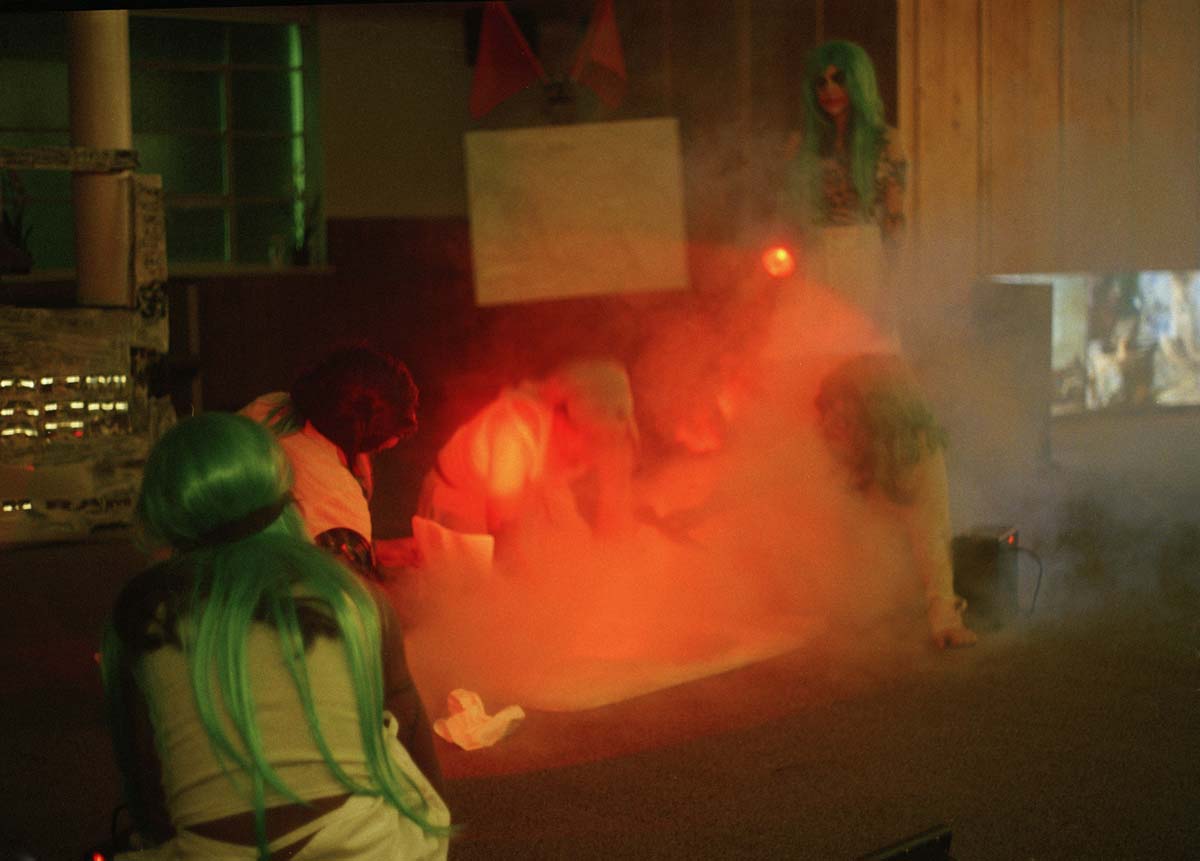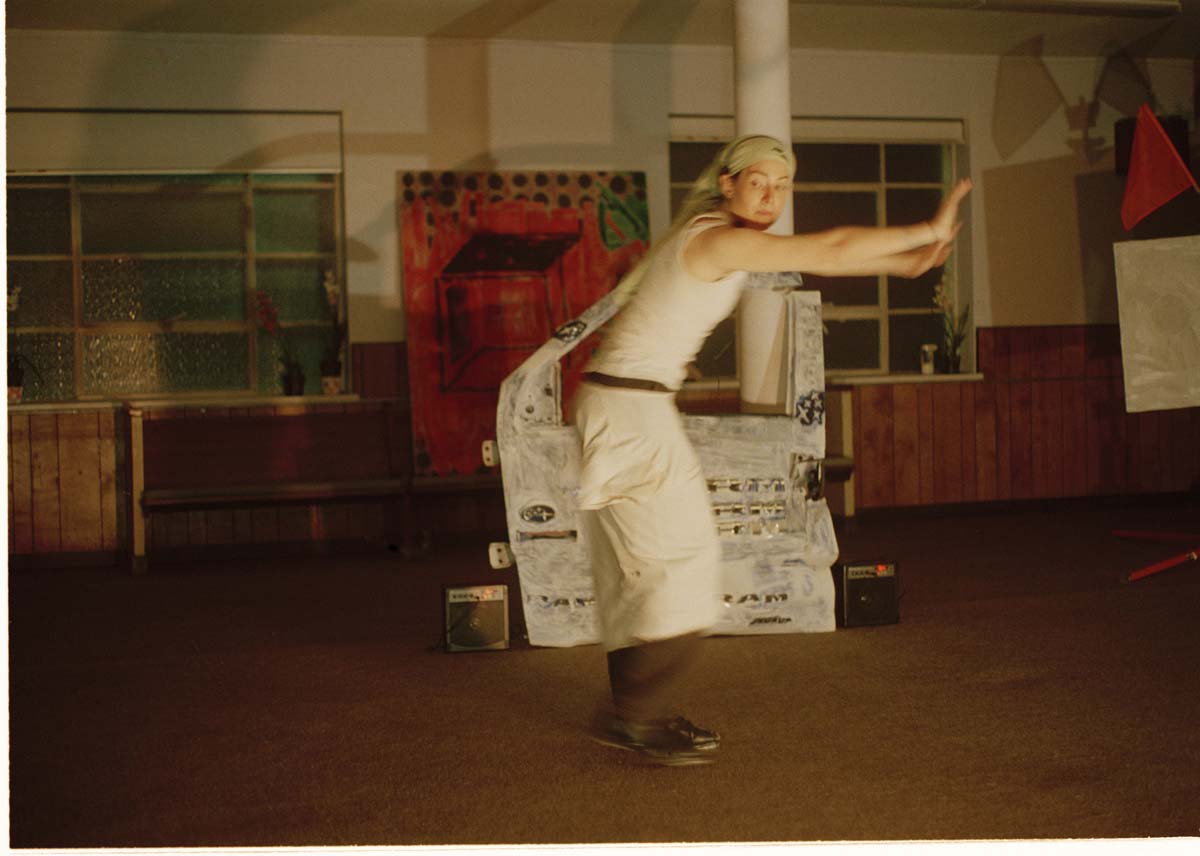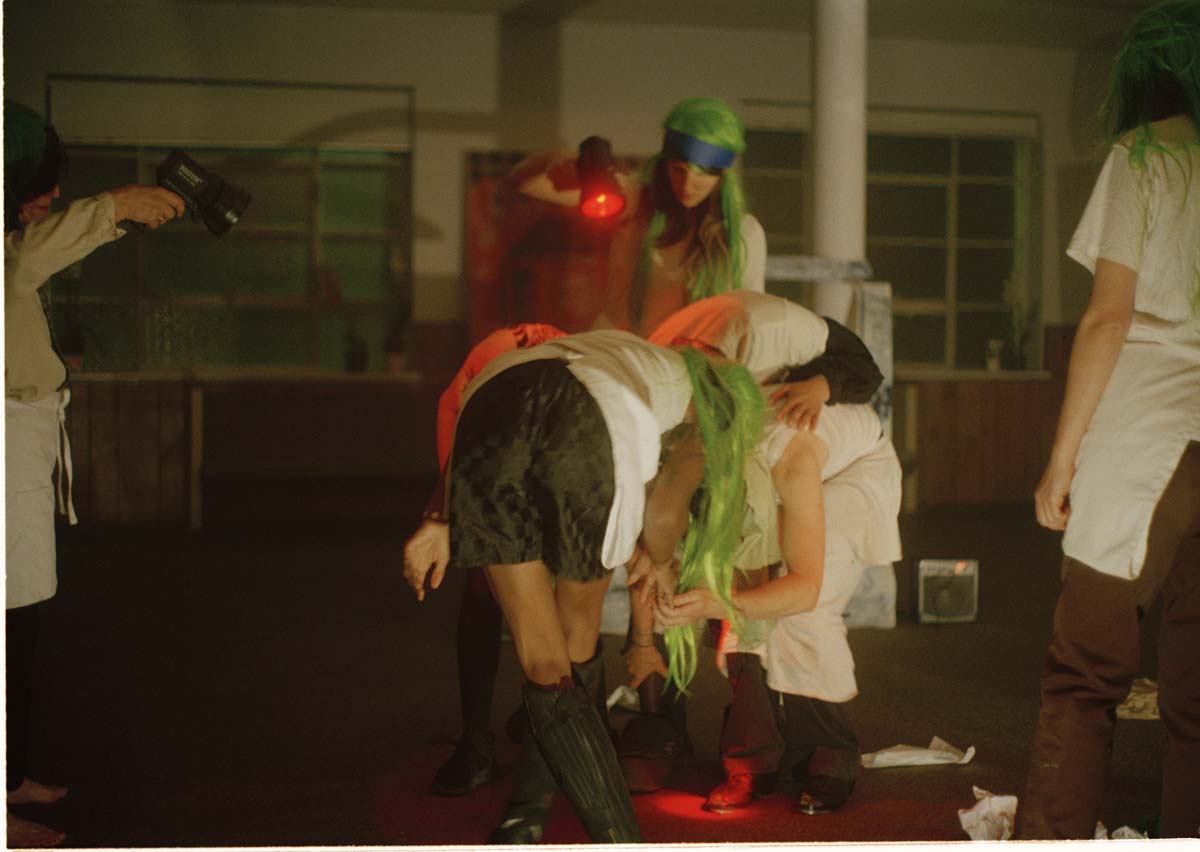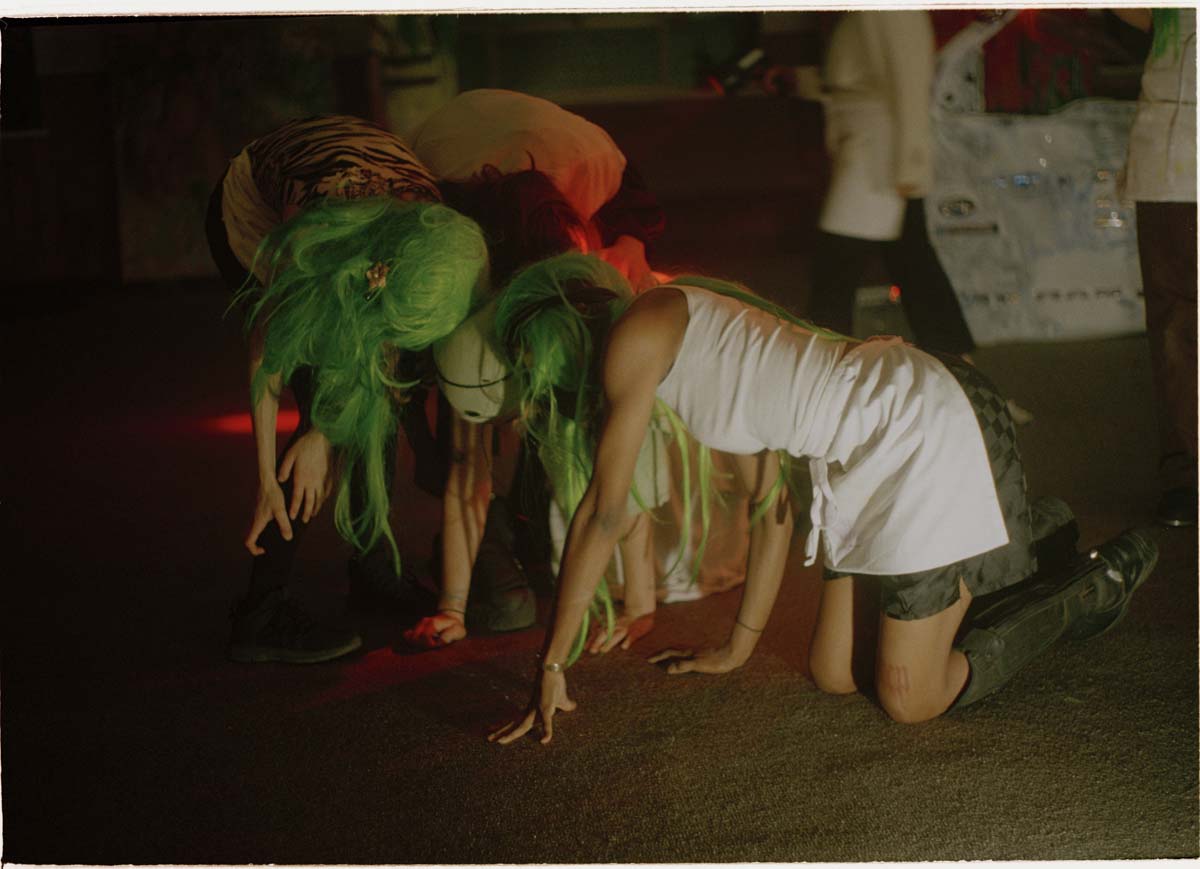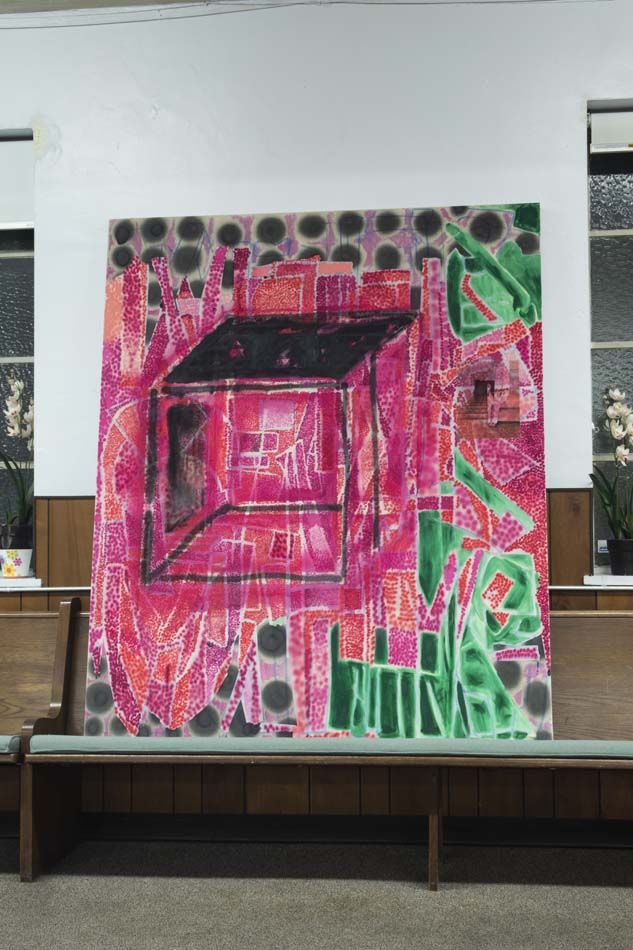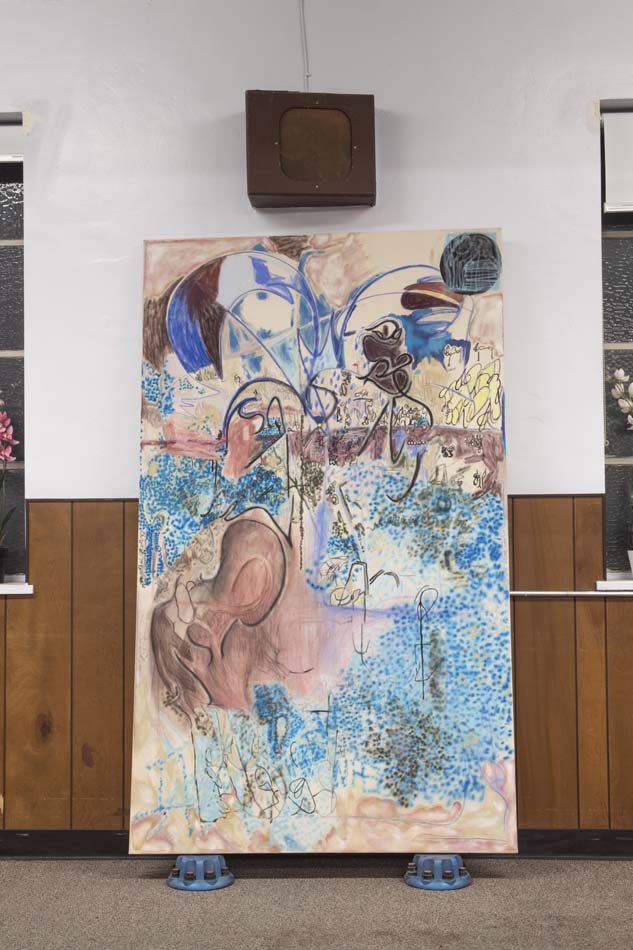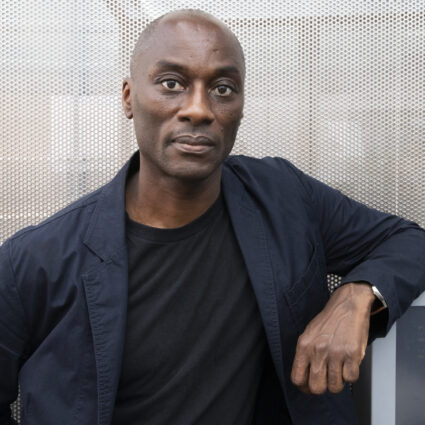Artist Taylor Engel’s varied and chaotic artworks envelop viewers in a shared experience of all-consuming obsession, codependency, and repetition.

Albuquerque, New Mexico | taylengel.com | @til3br3ak3rpt2
In “undisciplinary” artist Taylor Engel’s varied practice, things are always on the brink of falling apart. Towering sculptures like You Can Dish It, But Can’t Take It and Imitation Crab (all 2025) slouch against walls, their strange innards on the brink of disassembling. Bright, curdled paintings like Rash Degrees and Riff (arguably also a sculpture) are piled with recurring motifs to the point of overflow. And living environments like WHY CAN’T YOU LET ME HAVE WHAT I WANT / I NEED THIS / WHY CAN’T YOU LET ME HAVE THE THINGS THAT I THINK THAT I WANT / I DESERVE THIS are inhabited not only by these kinds of art objects, but also by imp-like actors performing inscrutable, yet coordinated, actions.
Through these chaotic and uncomfortable works, Engel (who uses they/them pronouns) processes their experience of obsessive-compulsive disorder and codependent practices. Using art to perform behaviors that may be, in the artist’s words, “unsuitable” for most social contexts, their works become a venue to negotiate things said and unsaid, finished and unfinished, through reenactments, layering, and distortion. As a result, to bear witness to these objects and actions can at times feel awkward, confounding, messy, or boring. But there is also a palpable urgency spanning the varied works, a phenomenon the artist explains in their biography:
“I used to believe [that] if I did something an uncomfortable amount of times… then ultimately the obsession would be expelled… However, what I also found is the more time you spend with the obsession… the more consumed you are.”
Engel includes audiences in this complex internal dynamic, demanding that we at the very least co-experience their mental landscape, if not actively empathize with it. Though there is an intense vulnerability in putting an “unsuitable” side of oneself on display, Engel not only faces down the severe judgement and dismissal that often accompanies visible neurodivergence and/or social illness, but brings others along for the ride.




